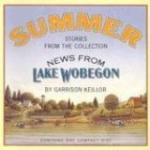“’I very well remember the red school-house in which I first began to learn (the paint was worn off long since, and it was very far from red when I last saw it); I remember the Nichols children, who lived, just below the school-house, in a large house. But I was very young then, and I do not make out a clear mental picture of Reuben Nichols. I think he must have been considerably older than I. But I recollect one Aseneth Nichols, one of two girls not much older than I, whom I thought very pretty, so that while I was a very good speller, and so one of the two at the head of the first class in spelling, who were entitled to “choose sides” for a spelling match; I used to begin by choosing these two pretty girls who couldn’t spell hokee to save their souls. Well, this was found not to answer; I knew enough to spell but not to choose sides; so the role had to be altered, and the two next to the one at the head had the honor of “choosing sides.” Ask Mr. Nichols if he had a sister Aseneth, and if he remembers any such nonsense as this. My kind regards to him.
“’Yours,
“‘HORACE GREELEY.’”
“I don’t believe,” said Gabrielle, “that papa ever wrote that letter.”
“It does not sound much like him,” rejoined Marguerite, “with the exception of ‘Yours, Horace Greeley’; what do you think, mamma?”
“The letter is characteristic,” was mamma’s reply; “the style is his, but there are several words that I have never known him to use; however, they may have been illegible in the original, and their place supplied by the printer’s ingenuity. I remember hearing father and mother often speak of Reuben Nichols who lived near grandfather in Londonderry, and I believe that he had a son named Reuben, and a daughter named Aseneth, so the letter must be genuine, I suppose.”
“Was it true, mamma?” inquired Marguerite, “that uncle was fond of little girls? You know it has been said of him that he was as a man quite indifferent to women.”
“Yes, he was very partial to little girls,” was mamma’s reply, “when they were pretty and gentle. Not, however, in the love-making way of the present precocious generation, but he liked to talk to them, and relate stories from the books he had read. Perhaps the secret of his preference lay in the fact that they made more attentive and sympathetic listeners than his rough boy-friends.
“I told you the other day that at the ball he attended when thirteen years old, he was the escort of Anne Bush, the prettiest girl in the village. She was perhaps a year younger than he, and as I remember her, extremely pretty—a slender figure, cheeks like roses, blue eyes, dark hair, and very gentle, ladylike ways. She had a sister Sophie, who was as plain as Anne was pretty; and a wild, mischievous girl, but my inseparable and dearest companion.




